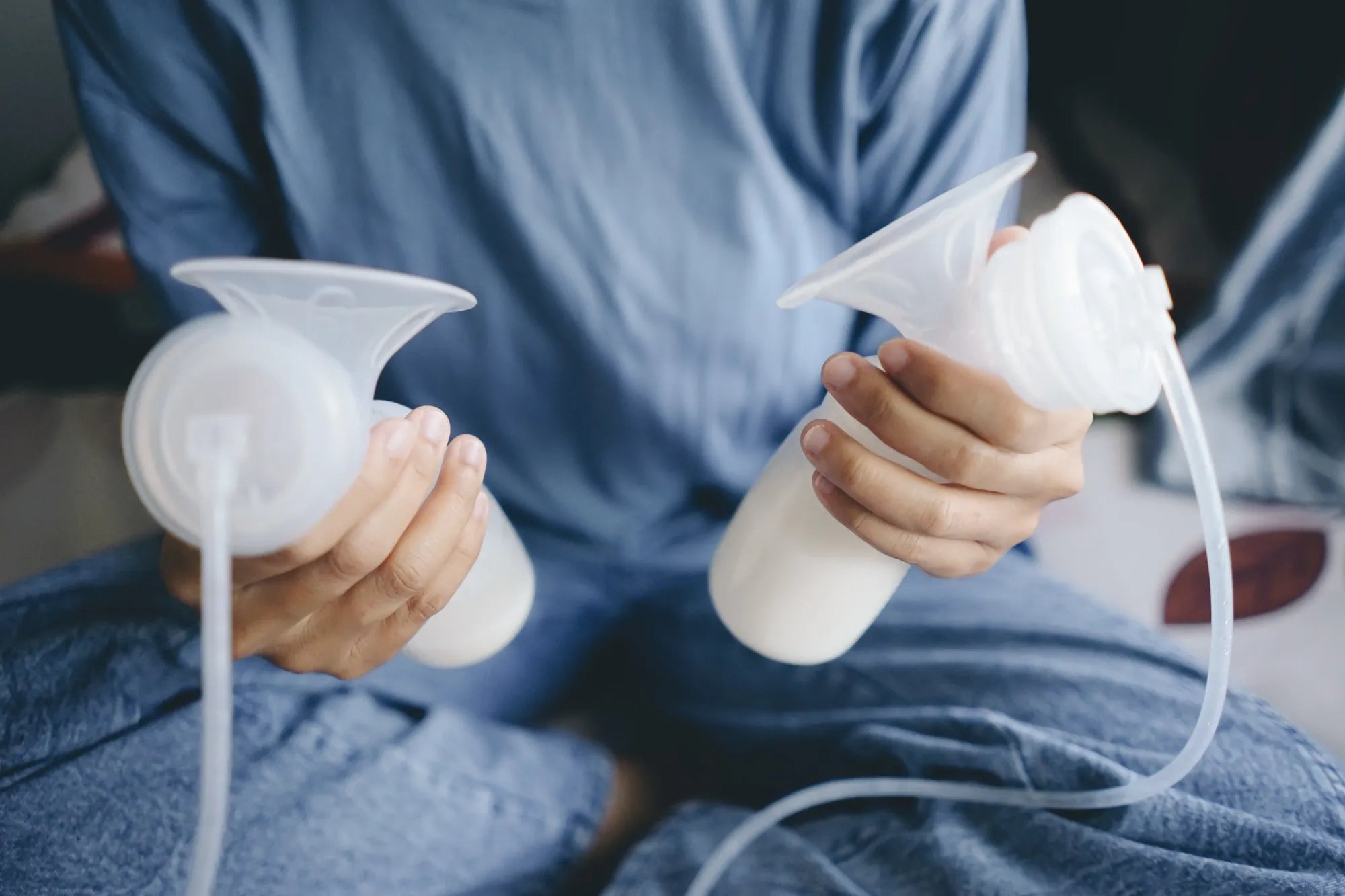Home
Pregnancy, Breastfeeding, and Pumping: The Ultimate Guide for Moms
Can You Pump Breast Milk Before Birth: What You Need to Know

Can You Pump Breast Milk Before Birth: What You Need to Know
When it comes to preparing for the arrival of a new baby, expectant mothers often explore various ways to ensure they are ready for the challenges of breastfeeding. One question that frequently arises is, 'Can you pump breast milk before birth?' This topic has sparked curiosity and debate among healthcare professionals and mothers alike. Understanding the science behind this practice, its potential benefits, and the risks involved is crucial for making informed decisions.
The Science Behind Pumping Breast Milk Before Birth
Breast milk production is a complex process that begins during pregnancy. Hormonal changes, particularly the rise in prolactin levels, stimulate the mammary glands to produce milk. However, the actual release of milk, known as lactation, typically occurs after childbirth. This is due to the drop in progesterone levels post-delivery, which allows prolactin to take full effect.
Pumping breast milk before birth involves using a breast pump to express colostrum, the nutrient-rich first milk produced during pregnancy. Colostrum is packed with antibodies and essential nutrients that are vital for a newborn's immune system. While some women may naturally leak colostrum during pregnancy, actively pumping it is a different matter.
Potential Benefits of Pumping Before Birth
There are several reasons why a mother might consider pumping breast milk before birth. One of the primary benefits is the ability to store colostrum for the baby's first days of life. This can be particularly useful for mothers who anticipate difficulties with breastfeeding immediately after delivery, such as those with medical conditions or those who have had previous challenges with lactation.
Another potential benefit is the opportunity to familiarize oneself with the breast pump and the process of expressing milk. This can help reduce anxiety and increase confidence when it comes time to breastfeed after birth. Additionally, pumping before birth may help stimulate milk production, potentially leading to a more robust milk supply once the baby arrives.
Risks and Considerations
While there are potential benefits to pumping breast milk before birth, it is essential to be aware of the risks and considerations involved. One of the primary concerns is the potential for preterm labor. Nipple stimulation, whether through pumping or manual expression, can trigger the release of oxytocin, a hormone that can cause uterine contractions. For women at risk of preterm labor, this could pose a significant risk.
Another consideration is the possibility of infection. The breasts are more sensitive during pregnancy, and improper pumping techniques or unsterilized equipment could lead to infections such as mastitis. It is crucial to consult with a healthcare provider before starting to pump breast milk before birth to ensure that it is safe and appropriate for your specific situation.
Guidelines for Pumping Breast Milk Before Birth
If you and your healthcare provider decide that pumping breast milk before birth is a suitable option, there are several guidelines to follow to ensure safety and effectiveness. First and foremost, it is essential to use a high-quality breast pump that is designed for expressing colostrum. Make sure to thoroughly clean and sterilize all equipment before each use to minimize the risk of infection.
Start slowly and gently, as the breasts are more sensitive during pregnancy. Begin with short pumping sessions, gradually increasing the duration as your body becomes accustomed to the process. Pay attention to any signs of discomfort or pain, and stop immediately if you experience any adverse effects.
It is also important to store the expressed colostrum properly. Use sterile containers and label them with the date and time of expression. Colostrum can be stored in the refrigerator for up to 48 hours or frozen for longer-term storage. Always follow proper storage guidelines to ensure the safety and quality of the milk.
Consulting with Healthcare Providers
Before making any decisions about pumping breast milk before birth, it is crucial to consult with your healthcare provider. They can provide personalized advice based on your medical history, pregnancy status, and individual needs. Your healthcare provider can also monitor for any potential risks and guide you through the process to ensure the safety of both you and your baby.
Additionally, consider seeking support from a lactation consultant or breastfeeding specialist. They can offer valuable insights, techniques, and encouragement to help you navigate the challenges of breastfeeding and pumping. Remember that every mother's journey is unique, and what works for one person may not be suitable for another.
Exploring the possibility of pumping breast milk before birth can be an empowering step in preparing for your baby's arrival. By understanding the science, benefits, and risks involved, you can make informed decisions that support your breastfeeding journey. Always consult with your healthcare provider to ensure the safety and well-being of both you and your baby. With the right guidance and preparation, you can confidently take this step towards providing the best possible start for your newborn.
Share


